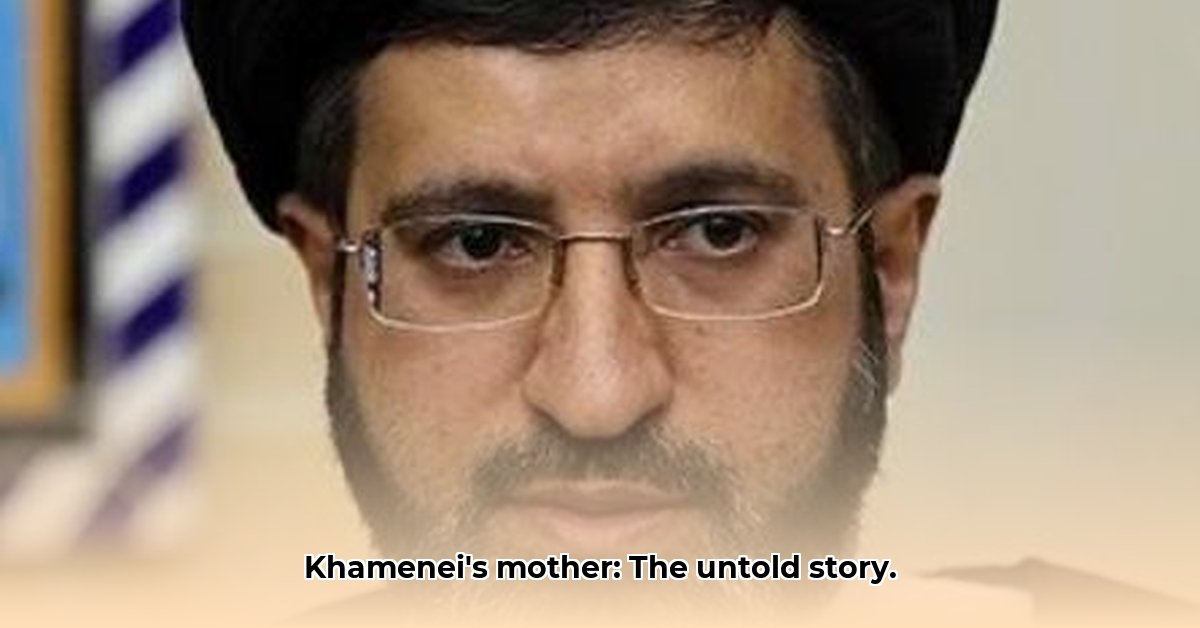The Khamenei family’s significant presence in Iran’s political landscape is a well-established fact. While figures like Supreme Leader Ali Khamenei and his son Mojtaba often dominate the headlines, a closer examination of other family members, such as Masoud Khamenei, offers a more nuanced understanding of their power dynamics. For more on the Khamenei family, see this overview. This article explores the life and role of Masoud Khamenei, examining his influence, his connection to his father’s legacy, and his place within the broader context of Iranian politics.
Masoud Khamenei: Guardian of the Supreme Leader’s Legacy
Masoud Khamenei, also known as Mohsen Khamenei, is the third son of Iran’s Supreme Leader, Ali Khamenei. He holds the title of “Hujjatul-Islam,” a significant honorific for Shia clerics. Unlike some of his brothers, he does not hold a formal governmental or non-governmental position, a restriction reportedly imposed by his father to avoid accusations of nepotism. However, Masoud plays a vital role in preserving and promoting his father’s legacy.
Managing the Supreme Leader’s Works
Masoud Khamenei is deeply involved in managing the office responsible for preserving and publishing the works of Ayatollah Ali Khamenei. This role gives him considerable influence over how the Supreme Leader’s ideas and pronouncements are presented to the public. He is entrusted with collecting his father’s memoirs, ensuring the accurate documentation and dissemination of his speeches, writings, and pronouncements. This position allows him to shape the narrative and interpretation of his father’s legacy for future generations, centralizing control over the Supreme Leader’s image.
Education and Religious Affiliations
Like many members of the Khamenei family, Masoud is a cleric. He studies and teaches in the seminary of Qom, a highly influential center of Shia Islamic learning. Additionally, he is a member of the Society of Seminary Teachers of Qom, a prestigious group of religious scholars that helps shape theological discourse in Iran. His involvement in these religious institutions solidifies his position within the clerical establishment and reinforces the family’s religious credentials.
Family Connections and Influence
Masoud Khamenei’s family connections extend beyond his immediate relatives. He is married to the sister of Sadiq Kharazi, a prominent political figure and former diplomat. This connection links him to the Kharazi family, which has significant influence in Iranian politics and academia. Furthermore, he is the son-in-law of Seyyed Mohsen Kharazi, a former member of the Assembly of Experts. These familial ties illustrate the complex web of relationships that underpin the Iranian political elite.
Wealth and Business Interests
Reports indicate that Masoud Khamenei possesses considerable wealth. Some sources claim he holds significant funds in foreign bank accounts, as well as substantial assets within Iran. He has also been linked to the sales of Renault vehicles in Iran, suggesting involvement in lucrative business ventures. These allegations of wealth raise questions about the financial dealings of the Khamenei family and the extent of their economic influence.
A Low Public Profile with Significant Behind-the-Scenes Influence
Despite his family connections and reported wealth, Masoud Khamenei maintains a relatively low public profile. He does not frequently appear in the media or participate in public events. However, his role in managing his father’s works and his connections to influential figures suggest that he wields considerable influence behind the scenes. This quiet influence is a hallmark of many members of the Khamenei family, who often prefer to operate outside the direct glare of the spotlight.
The Khamenei Family: Dynasty or Dedicated Clerics?
The Khamenei family’s long-standing presence in Iranian politics has prompted some to describe them as a dynasty. While they do not hold hereditary positions in the traditional sense, their continued influence and control over key institutions raise questions about the nature of power in Iran. Defenders of the Khamenei family argue that their positions are based on religious merit and their commitment to the principles of the Islamic Revolution. Critics, however, contend that their power is derived from nepotism and their ability to control access to resources and opportunities.
Criticism and Dissent within the Family
It is important to note that not all members of the Khamenei family support the current political system. Ali Khamenei’s sister, Badri Khamenei, publicly criticized her brother’s rule and condemned the government’s crackdown on protesters, demonstrating that dissent exists even within the inner circle of the Khamenei family. This public disagreement points to the complex and sometimes conflicting views within the family regarding the direction of Iranian politics.
Understanding the Khamenei Family’s Enduring Influence
Understanding the role of figures like Masoud Khamenei is essential for comprehending the dynamics of power in Iran. By examining his involvement in managing his father’s legacy, his religious affiliations, and his family connections, we gain a more complete picture of how the Khamenei family exerts its influence. While the details of his personal wealth and business dealings remain opaque, the available information suggests that he plays a significant role in maintaining the family’s economic and political power. Further research and greater transparency are needed to fully understand the extent of his influence and the impact of the Khamenei family on Iranian society.
- Unveiling the Enigma: Mansoureh Khojasteh Bagherzadeh’s Public Appearances & Private Life in Iran - July 18, 2025
- Unveiling the Mystery: Mansoureh Khojasteh Bagherzadeh’s Husband: A Rare Glimpse into a Private Life - July 18, 2025
- Unveiling Masoud Khamenei’s Mother: Power, Influence, and Iran’s Future - July 18, 2025













